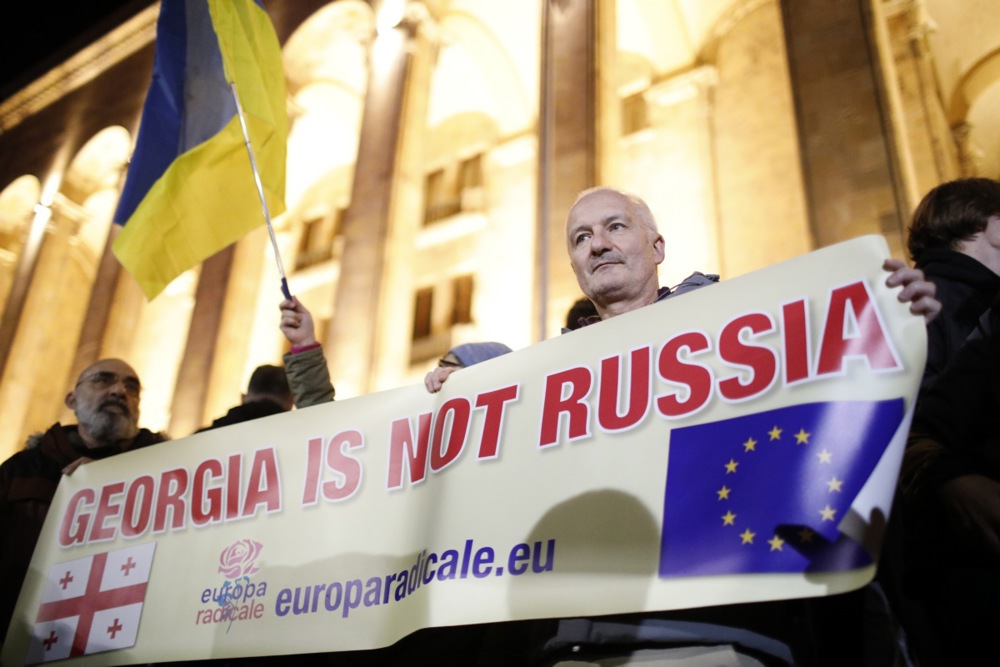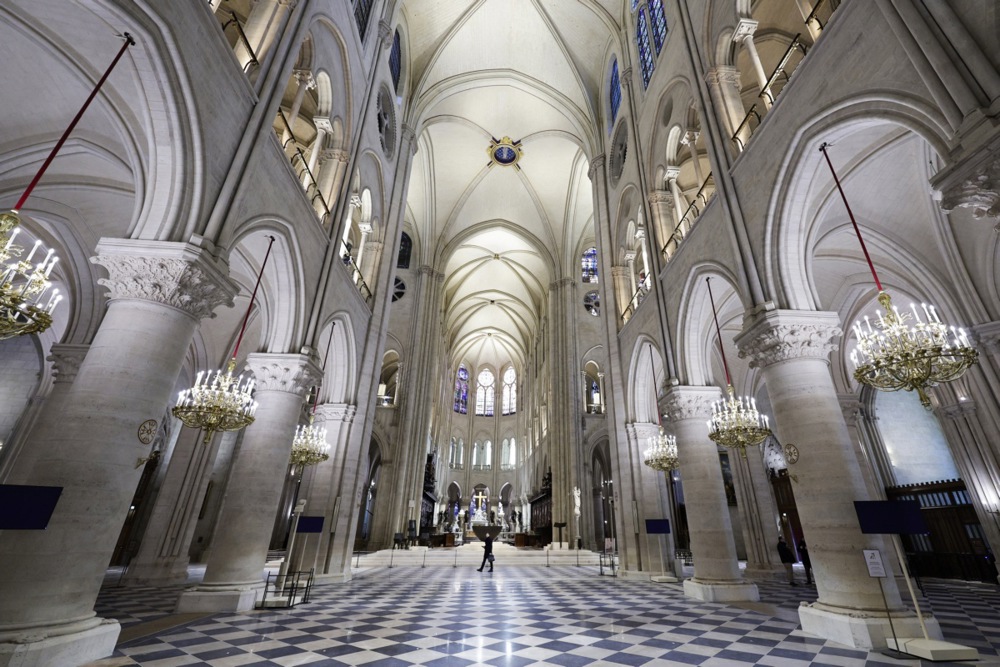Georgian Prime Minister Irakli Kobakhidze has announced that his ruling party would abort his country’s attempt to join the European Union until 2028 and said his cabinet would refuse all EU budget support.
The statement on the evening of November 28 came after the European Parliament called for new elections in Georgia and a re-rrun of the October 26 vote under international supervision.
It also demanded EU sanctions on Georgia’s PM and high-level officials, stating: “Policies pursued by the Georgian Government are incompatible with the country’s Euro-Atlantic integration prospects.”
According to the EP, the Georgian elections contained too many significant irregularities. MEPs rejected the outcome.
According to the preliminary findings and conclusions of OSCE Office for Democratic Institutions and Human Rights (ODIHR) International Election Observation Mission, which included the EP’s election observation delegation, the ballot was marred by reports of pressure on voters, a polarised media environment and political “instrumentalisation” – treating people as tools to achieve the desired outcome.
Europe Elects, a Germany-based international election watchdog and data analyst, has said it found clear signs of fraud in the Georgian election results. https://t.co/a7el3S11J1
— Brussels Signal (@brusselssignal) October 31, 2024
Kobakhidze made the announcement during a briefing following consultation with his party, Georgian Dream – Democratic Georgia, also colloquially known as the Kotsebi, a pro-Russian populist group.
He adopted the official party stance that, although EU membership was still the goal for 2030, Georgia would only achieve that if it maintained its “dignity”.
Kobakhidze argued Georgia was a European country that had always looked to Europe as “the bastion of Christianity”, adding that it shared European values.
He stated, though, that EU-Georgian relations should be a two-way street. As a “proud and self-respecting nation”, it was “categorically unacceptable” for Georgians to see EU integration as charity to be bestowed upon it, he said.
Kobakhidze also claimed that “European politicians and bureaucrats” had been “hurling a cascade of insults” at the Georgian Government.
“The ill-wishers of our country have turned the European Parliament into a naked weapon of blackmail against Georgia, which is the greatest shame for the European Union.
“In the last three years, the European Parliament has adopted five resolutions full of lies and insults, which were not shared by the Georgian society, the European Commission, and even the European Council,” he insisted.
Kobakhidze argued that European politicians and bureaucrats had been “meddling in the parliamentary elections” and were “attacking the legitimate choice of the people”. He added that they were “attacking the OSCE/ODIHR Election Observation Mission, which assessed the elections as competitive, with exactly the same fervour as the leaders of the radical opposition in Georgia”.
As a result of the decision to walk away from the current ascension talks, pro-EU demonstrators took to the streets in the capital, Tbilisi.
That led to clashes with the police as protestors tried to get to the parliament, threw fireworks and creating barricades.
In reaction, police in riot gear used a water cannon, tear gas and pepper spray.
In a statement on November 29, US Ambassador to Georgia Robin Dunnigan “strongly urged” the ruling Georgian Dream party to change course and guide the nation back towards Western integration, democracy, and the EU, which she said was the “desire of the clear majority of the Georgian population”.
Georgia has become an increasingly contentious point between Russia and the West due to its geopolitical location, aspirations for European integration and the Kremlin’s efforts to maintain influence in its former Soviet sphere.
Both power blocs have accused each other of wanting to pull Georgia into their camp via illegitimate means.
Happening now in Tbilisi
No Comment needed ???? #Tbilisiprotests #Georgiaprotests pic.twitter.com/ujrkFgLt4g
— Mariam Kasrashvili ?????? (@KasrashviliM) November 28, 2024





